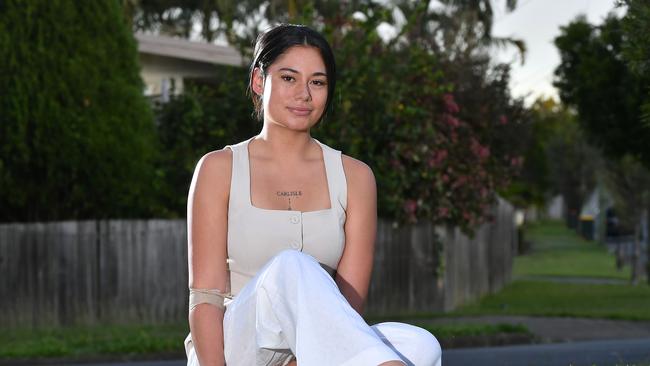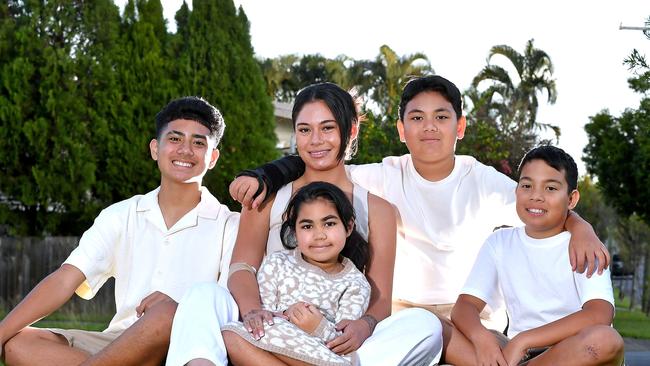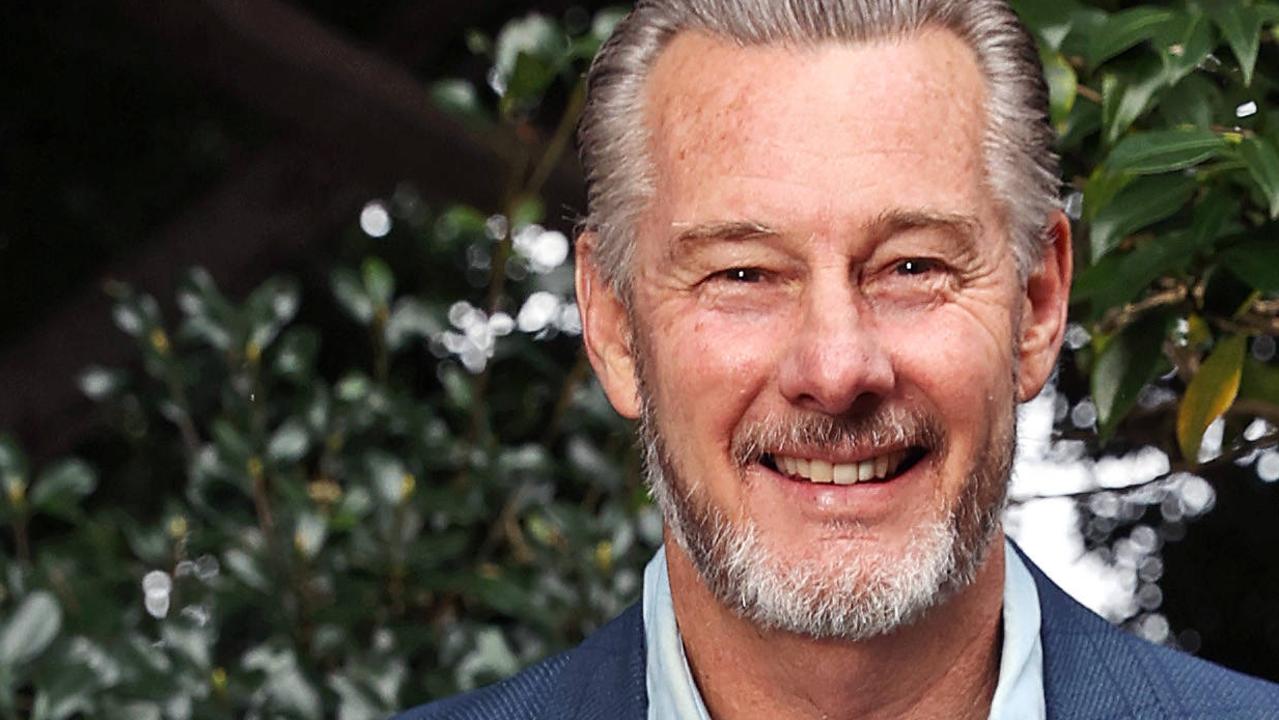Brisbane nurse diagnosed with brain tumour says earlier genetic testing could have spotted it
A nurse diagnosed with a brain tumour believes genetic testing could have led to earlier detection, preventing severe symptoms.
Cancer
Don't miss out on the headlines from Cancer. Followed categories will be added to My News.
A Brisbane nurse has been diagnosed with a brain tumour which she believes could’ve been discovered years earlier with genetic testing.
Tess Talolua, 27, suffered multiple seizures, headaches, loss of movement and gaps in her memory and was rushed to hospital on May 22, where a CTE scan revealed a brain tumour and she was advised to act immediately.
While the exact nature of Ms Talolua’s tumour will take several weeks to determine, her two sisters were diagnosed with a benign brain tumour five years ago and said early intervention could’ve prevented her suffering.
“All three of my sisters have now had a brain tumour of some kind, this could have been picked up years ago when I asked my doctor, but they said I had no symptoms to do an MRI,” she said.

“The doctors said that it’s just not that easily available.”
It comes as the Australian Brain Tumour Collaborative chair Craig Cardinal said the organisation had appealed to the federal government for funding for genetic testing.
“Brain cancer is significantly underfunded in research and support in Australia and the national brain cancer community is vigorously lobbying the government to try and bring awareness for the need of significant funding for research and dedicated support systems,” he said.
As a registered nurse and a single mother of four, Ms Taloula never thought she would be the one needing help.
“I had woken up (Thursday morning) and I went to jump out of bed to get to the bathroom and I couldn’t move my whole left side of my body,” she said. “I called out to my oldest son to come help me, he came and walked me to the toilet.”
Regaining movement, she was able to drop the kids to school and when she got home “to take a nap” things took a turn. A confused Ms Talolua answered the door to colleagues responding to her triple-0 call, but she has “no memory” of making it.
“They thought I had been assaulted,” she said.
“They said there were splatters of blood all around the house and facial wounds, they ran around the house to check for forced entry – no signs of forced entry or that anyone had been in the house.

“On the way to the hospital I had another seizure and they put two and two together.”
The nurse sustained a broken nose and underwent scans that revealed a brain tumour that was rapidly growing.
Ms Talolua underwent a gruelling 4.5 hour surgery on Thursday to remove the tumour attached to the superior sagittal sinus, a major vein running through the centre of the brain.
Due to the tumour’s proximity to the right frontal lobe, which controls movement, she has been left partially paralysed on her left side and will undergo extensive physiotherapy to regain strength.
“I’m happy with the outcome of the surgery. The neurosurgeon was able to remove the entire tumour, but because it was connected to the side wall of a main blood vessel I lost three to four litres of blood,” she said.
“My (nursing) license has been restricted for the next 12 months. I am trying to look at planning for the next 12 months but then again, if I have another seizure tomorrow, that 12 months will then again start from tomorrow.”
Around 2000 people each year are diagnosed with brain cancers and around 1500 die from the disease, according to the Australian Brain Tumour Collaborative.
University of Melbourne professor Enes Makalic is currently researching familial glioma, a brain tumour that runs in families.
Prof Makalic said the proposed study will analyse the DNA of families with multiple cases of glioma.
“This will help identify members of affected families with an increased risk of glioma, improve understanding of disease biology and drive future treatments,” he said.
“We will collect feedback from Australian glioma patients and their families on understanding their risk and the best ways medical practitioners can communicate this to reduce stress and anxiety.”
Originally published as Brisbane nurse diagnosed with brain tumour says earlier genetic testing could have spotted it


